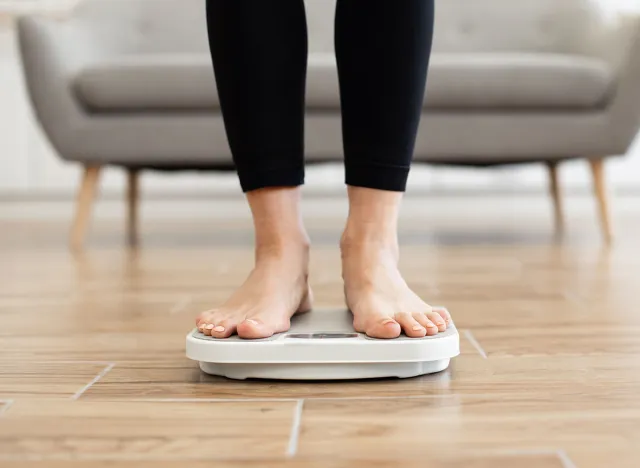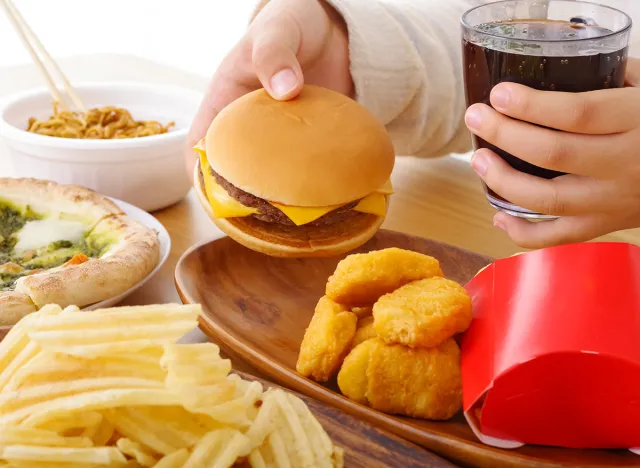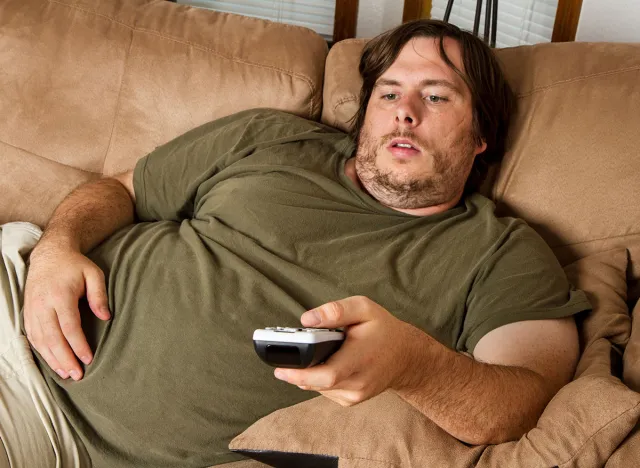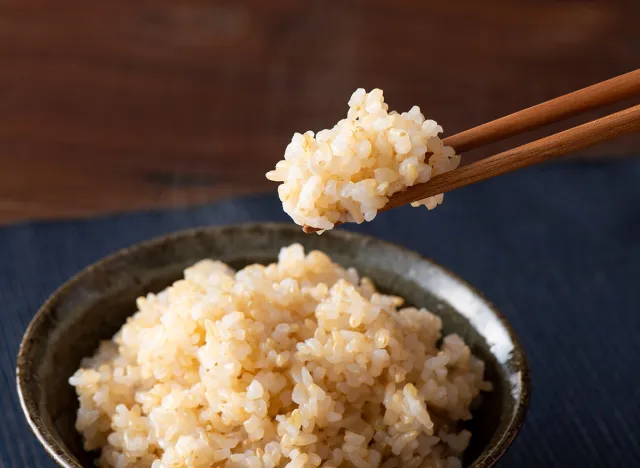8 Things You Should Do to Lose 30 Pounds in 6 Months, According to Dietitians

If you've had enough of fad diets and failed weight loss programs, it's time to simplify your efforts. "Losing weight isn't a linear experience. You'll have ups and downs. But if the overall trend is downward, that's when you know you're having success," exercise physiologist and psychologist David Creel, PhD, tells the Cleveland Clinic. "That's why we have to think about how to lose weight as a lifestyle." Losing 30 pounds in 6 months means a weight loss of 5 pounds a month—very doable! Here are eight things you should do to burn fat and lose weight, according to dietitians.
Calorie Deficit

Weight loss comes down to setting a calorie deficit and sticking to it. Adjust the deficit as you approach your goal weight. "We're all unique beings, and our bodies have different needs," Dr. Creel says. "But at the end of the day, the most basic concept of losing weight is that you need to achieve a calorie deficit."
Weigh Yourself Frequently

Keeping track of your weight can help you keep on track. "In addition to a reduced-kilocalorie diet and physical activity, frequent weighing appears to be an integral part of successful weight loss maintenance," LuAnn Soliah, PhD, RD, says via Today's Dietician. "Monitoring weight on a regular basis is a form of accountability and self-monitoring, and consistent self-monitoring is associated with improved weight loss." You can benchmark your progress with this useful Lean Body Mass Calculator.
Avoid Ultra-Processed Foods

A diet heavy in ultra-processed foods could undermine your weight loss. "Newer research suggests that overly processed foods are especially easy to overeat because they can be eaten more quickly and they don't produce the same level of contentment as more wholesome foods," Samantha Cassetty, RD, tells Better by TODAY. "On the flip side, whole and minimally processed foods typically take a longer time to eat and are linked with appetite-regulating benefits, so you're more likely to fill up on portions that are right for your needs."
Don't Sit So Much

A sedentary lifestyle can cause weight loss to slow down—so turn off the TV and take a walk. "The national average time for watching television is 28 hours per week, or four hours per day, for the average American adult," Soliah says. "This is a tremendous amount of time people spend engaged in sedentary activity. Similarly, childhood obesity specialists report a direct correlation between pediatric weight control problems, increased body mass indexes, and excessive television viewing. Attempts to reduce accumulated weight and enhance physical fitness may begin during childhood by including more physical activity in leisure time."
RELATED: I'm 52, and These 3 Tips Helped Me Shed 40+ Pounds in 6 Months
Stress and Sleep

Stress and sleep both impact weight loss. "Stress is a major contributor to weight gain or inability to lose weight because it can cause you to turn to food for comfort," says a dietician at North Kansas City Hospital. "Take time to relax and unwind. Meditation, yoga, self-care, and making time for your interests or hobbies can reduce your stress level. Sleep. Lack of sleep is another contributor to weight gain or inability to lose weight. The CDC recommends getting 7-9 hours of sleep each night."
Strength Training

Strength training can help preserve lean muscle mass. "Muscle is metabolically active. Your muscle burns through calories much faster, even if you're just sitting on the couch," Dr. Creel says. "The more muscle mass you have, the quicker you burn calories. Strength training doesn't usually burn as many calories as cardiovascular exercise. But the benefits of maintaining muscle are of utmost importance. And if cardio exercise is hard for you, strength training is sometimes an easier gateway into physical activity."
Eat Healthy Carbs

You don't have to remove carbs to lose weight. "What I've learned is that you don't need to take an all-or-nothing approach to carbs," Cassetty says. "Most often, I consider grains a side dish rather than an entrée, but I still eat them every day. What is important is that you consistently choose whole grains over their refined counterparts. That means mostly eating brown rice instead of white, whole-grain bread over the pillowy, white sandwich bread you may have grown up loving, and choosing whole-grain cereals, whether cold or hot, over hyper-processed refined versions."
RELATED: 8 Things You Should Never Do While on GLP-1 Meds
Don't Try To Out-Exercise Your Diet

Do not try to out-exercise an unhealthy diet—you're probably burning far fewer calories with your workouts than you think. "I'm not saying you should take a lifelong pass on fitness, but what I am saying is that if you're killing it on the cardio machine merely to burn calories and squeeze into your extra-skinny skinny jeans, you may need to re-think this strategy," Cassetty says. "When it comes to losing weight, it's more about what you put in your mouth than what you're burning off. Among participants in the Weight Control Registry, walking is the most frequent form of exercise, and there was no difference in weight maintenance after three years among people who participated in the most physical activity compared to those exercising the least." And if you enjoyed this article, take advantage of these 15 Quick Ways to Lose Body Fat Percentage in a Week.




